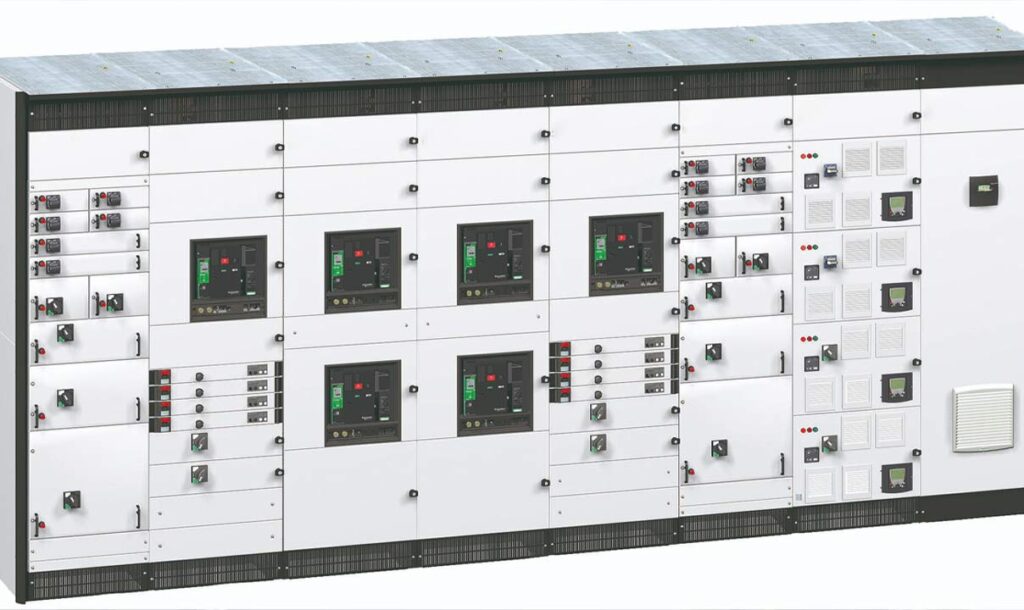Safety is paramount in hospitals, where reliable and efficient electrical systems are crucial for patient care and operational continuity. Implementing advanced solutions like Schneider Electric switchgear can significantly enhance safety and reliability in healthcare facilities. This blog by Balaji Switchgears explores how Schneider Electric’s switchgear contributes to improved safety in hospitals, highlighting the benefits for both patients and staff.
Enhanced Reliability and Protection
Schneider Electric switchgear is designed to provide robust protection and reliability, ensuring uninterrupted power supply to critical hospital equipment. This reliability is essential in healthcare settings where power outages can have severe consequences.
- Uninterrupted Power Supply: Schneider Electric switchgear ensures a continuous power supply to life-saving medical equipment, reducing the risk of power interruptions that could compromise patient safety.
- Advanced Protection Mechanisms: The switchgear is equipped with advanced protection mechanisms that prevent electrical faults, such as short circuits and overloads, safeguarding hospital infrastructure and ensuring operational continuity.
Improved Patient and Staff Safety
The safety of patients and staff is a top priority in any hospital. Schneider Electric switchgear contributes to creating a safer environment through several key features:
- Arc Flash Protection: Arc flashes are dangerous electrical events that can cause serious injury. Schneider Electric switchgear incorporates arc flash protection to mitigate these risks, ensuring a safer environment for maintenance personnel and hospital staff.
- Fire Prevention: Electrical faults can lead to fires, posing significant risks in hospitals. Schneider Electric switchgear is designed with fire-resistant materials and advanced fault detection systems to prevent electrical fires, enhancing overall safety.

Efficient Energy Management
Hospitals are energy-intensive facilities that require efficient energy management to operate smoothly. Schneider Electric switchgear plays a vital role in optimizing energy usage, which in turn contributes to safety and operational efficiency.
- Smart Energy Monitoring: The switchgear includes smart energy monitoring capabilities that allow hospital administrators to track energy consumption in real-time. This monitoring helps identify areas where energy can be saved, reducing operational costs and minimizing the risk of overloads.
- Load Management: Efficient load management ensures that critical medical equipment receives priority power supply, even during peak demand periods. Schneider Electric switchgear helps balance loads effectively, preventing potential disruptions.
Compliance with Safety Standards
Hospitals must adhere to stringent safety standards and regulations. Schneider Electric switchgear is designed to meet and exceed these standards, ensuring compliance and enhancing overall safety.
- Regulatory Compliance: The switchgear complies with international and local safety regulations, providing hospitals with the assurance that their electrical systems meet the highest safety standards.
- Quality Assurance: Schneider Electric is renowned for its commitment to quality and innovation. Their switchgear undergoes rigorous testing to ensure it performs reliably under various conditions, offering hospitals peace of mind regarding their electrical infrastructure.
Conclusion
Incorporating Schneider Electric switchgear into hospital electrical systems is a strategic move towards improving safety, reliability, and efficiency. For hospitals aiming to enhance patient care and operational effectiveness, these advanced switchgear solutions offer unparalleled benefits. Balaji Switchgears is proud to support healthcare facilities in implementing Schneider Electric’s innovative technologies, ensuring a safer and more reliable environment for both patients and staff. By prioritizing safety through state-of-the-art electrical solutions, hospitals can focus on their primary mission—providing exceptional care to those in need.
Originally Published at:
https://balajiswitchgears.com/improving-safety-in-hospitals-with-schneider-electric-switchgear/
Comments
Post a Comment